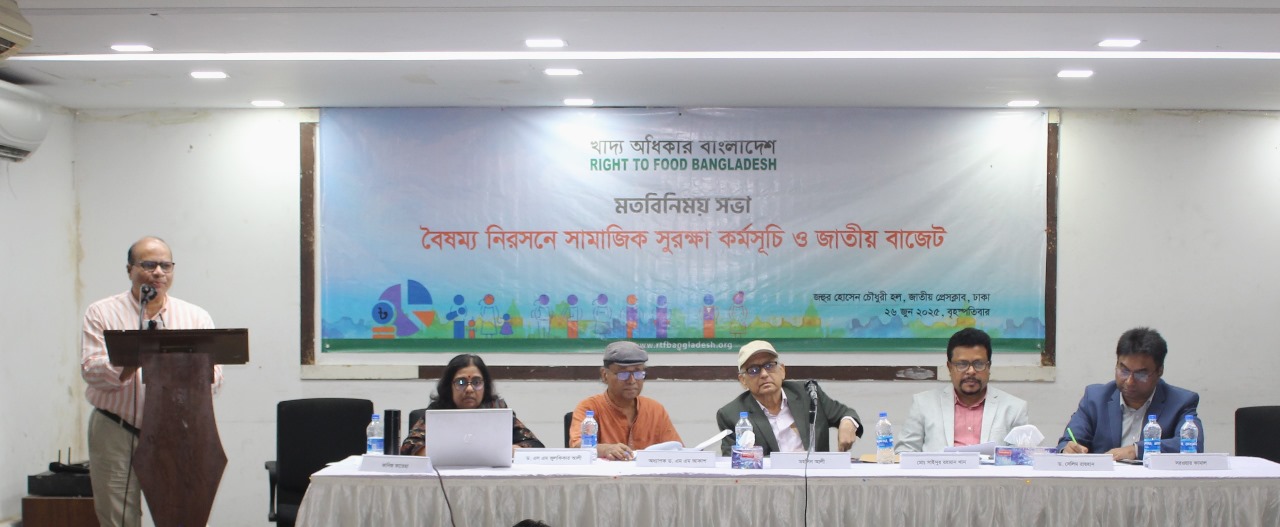Md Saidur Rahman Khan, director general of the Department of Social Services, has acknowledged that the government’s allowance for social welfare programs is extremely inadequate.
Speaking as chief guest at a discussion titled “Social Safety Net Programs and the National Budget 2025-26 in Eliminating Inequality,” organised by Right to Food Bangladesh at the National Press Club on Thursday, Khan noted that the state faces certain limitations. “We are still operating under the 2013 policy framework in 2025,” he said.
Khan also mentioned that complaints regarding allowance distribution have significantly decreased this year. However, he admitted that the third-gender community still shows disinterest in receiving the allowances, which remains a major challenge.
Outlining future plans, Khan informed that the government has begun issuing “Suborno Cards” to people with disabilities and is running specialised programs for marginalised groups such as the gachhi, who collect palm or date-tree juice. He also announced a job festival jointly organised by UNICEF Bangladesh and the Department of Social Services to take place next Saturday in Rajshahi.
Earlier, in his keynote paper, BIDS Research Director Dr SM Zulfiqar Ali expressed concern over the shrinking scope of social safety-net programs. “The number of social safety-net programs has been reduced from 140 to 95, and allocations dropped from Tk 136,000 crore last year to Tk 117,000 crore — just 1.27% of GDP,” he noted.
Ali stressed that the proposed budget failed to address the need for increasing both the number of beneficiaries and per-capita allocations. “There was an opportunity to do something different, but it was missed,” he said, adding that education, health, and social protection remain underutilised, with less than 75-80% of allocated funds spent.
Ali remarked, “The poor will have to eliminate poverty themselves,” citing the projected rise in extreme poverty in Bangladesh to 9.3% by 2025 — an additional 3 million people falling below the poverty line — according to the World Bank.
Also present at the discussion were Right to Food Bangladesh’s General Secretary Mohsin Ali, former chairman of Dhaka University’s Bureau of Economic Research Professor MM Akash, Deputy Director of WAVE Foundation Kaniz Fatema, and other journalists who examined more effective strategies for alleviating poverty and ensuring social safety-net programs reach those most in need.


